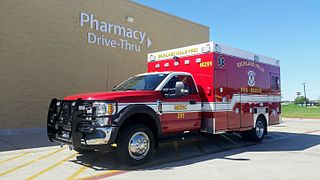The day before what I hoped would be my last meeting on the Omega Ambulance Service, I got a phone call, asking me for two meetings, one at ten o’clock and another at eleven. I agreed, but added a bit about family obligations and hoping this would be the last set of meetings for a while. The man on their other end tried to comfort me about that, while not actually committing.
Ah well, I thought, supplying a persecuted class with medical care is eminently worth it. And so I agreed.
When I arrived at my first meeting, I found five middle-aged men, all well-groomed. They reeked of “nervous doctor.”
We sat and they, in a jumble of conversations, all began asking questions. Clearly, they were afraid, out of their depth with the situation, and needed some kind of comfort from me. People often think of doctors as uber-confident demi-gods, but they’re the same as anyone else beneath their well-cultivated facades.
I quickly realized that these were the men who wanted me as an arbitrator. I was a regular person, more or less a professional like them. And so I engaged with them in nice, professional conversation. They asked whether I trusted the first group I met with – the fathers – and I said that I didn’t know them well enough to trust them, but that I did trust their necessities.
“How do you mean that?” one of them asked me.
“What I mean is that they have an overriding necessity for you and your skills right now… for me too, but not as urgently. And so long as they need you, you have a solid basis for trust. If and when that changes, then perhaps not.”
They looked concerned.
“You can also bear in mind that these men couldn’t hold their operations together if they were as wildly dangerous as they’re made to appear.”
Form there we went on to discuss our various jobs and specialties. It was more about getting comfortable than anything else, but I think they needed it.
Finally one of the docs loosened up. He smiled, looked at me, and said, “I disagree with you on a lot of things, you know.”
I smiled back, then recounted something that Milton Friedman used to tell his son, David. He said that no one solid was going to agree with him right off; it would take them time.
“And so, doc,” I said while patting him on the back, “I’ll take that as a sign of your solidity.” We both chuckled and some tension was defused.
Soon enough, however, they were serious again, and wanted specific answers, specifically on how they were to keep themselves and their families safe in this venture.
“First of all,” I told them, “you’re not going to be pristinely safe. Any state that rules by executive order, that commands businesses to fire people who haven’t taken a highly questionable injection… who operates through corporate boards of directors and loan-issuing banks to cut people off from medical care… this is a dangerous beast. Our safety has already vanished. Uncomfortable as it may be, this is what we must accept.”
I paused for just a beat, the continued, “And of what else are they capable? What kind of mania will the next fearstorm bring us?”
They all nodded uncomfortably.
“Now, just because the system forces us into disobedience, that doesn’t mean that we have to do it stupidly.” That brightened their faces a bit and I launched into a discussion of encryption, anonymity, Bitcoin, tradecraft and the fact that smart phones were their greatest vulnerability… that they were to be avoided like typhus.
Once done with those subjects, I got to the most practical level, addressing the ability of the enforcement system to identify them, how they would go about to seize their assets, and how they could pressure their families. Along the way we delved into deniability, lawyers, never using social media and so on.
Before we finished I asked them what they saw as the greatest vulnerability of this system, and to a man they said, “Getting pharmaceuticals.” I had considered that, but I was surprised at how adamant they were.
“The US pharmaceutical system is the most elaborate, best defended set of monopolies in world history,” one of them added, and it soon dawned upon me that he was right.
I closed everything off by reminding them that no matter how shaky they might feel, they were heroes… that it looked to me like the majority of physicians were ready to roll over and watch non-conformists die… to watch heretics be slowly killed.
In response, they responded by telling me that there were many others. “They know obedience to the system is treason to their oath,” one of them added. “They just don’t know what to do about it.”
“Then we’ll just have to show ‘em,” I said. Then we stood up and parted… warmly.
More next time.
**
Paul Rosenberg
freemansperspective.com

 (
(